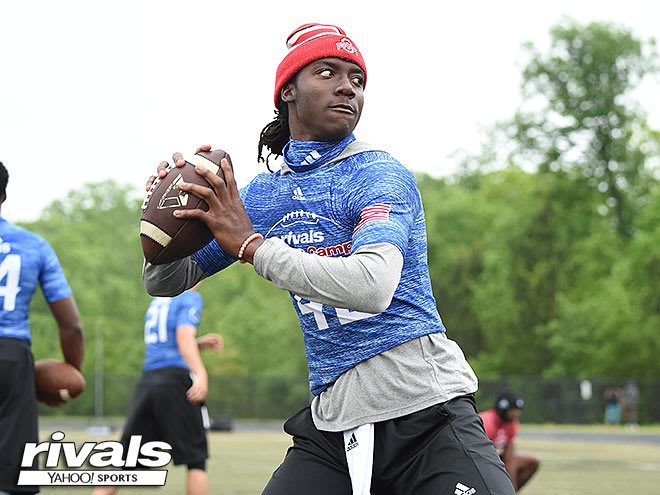Dishonesty is often a deal-breaker in recruiting

ALPHARETTA, Ga. – Asking a prospect about the reasons behind his commitment is spinning a cliché wheel.
He’ll cite schematic fits and intangible feelings. He’ll talk about a school being “home” and perhaps say something about a family atmosphere. The list of reasons why he passed on other programs, however, is usually miles more interesting.
Recruiting turn-off exists. Just like the dating world, most players have a list of deal-breakers – non-negotiable bullet points capable of immediately eliminating a school from consideration. Ohio State quarterback commit Emory Jones encountered one of his early in the process.
“One school told me that I was the No. 1 guy on the board for them,” Jones said. “They kept telling me, 'You’re our No. 1 target.’ I was talking to another player that just had visited that same school, and they told him the exact same thing … almost word for word. I was done with that school after that. Some of these coaches don’t realize we talk all the time.”
Elimination on the basis of dishonesty, it seems, is common. There are plenty of things college coaches can and do exaggerate and fabricate. Some things are subtle. Some things are egregious. Some fibs make you wonder how anyone thought they could pass them off as truths.
The latter was the case for No. 1 overall prospect Trevor Lawrence, who eliminated a school for an obvious lie before pledging his services to Clemson.
“I would do research and be ready,” Lawrence said. “I’d look into it and already know the answers to the questions I was going to ask. One school, I asked them about the depth chart, and I knew what they told me wasn’t the truth because I knew who was coming in and I knew who was coming back.
“I guess it’s a little [insulting], but that’s just how recruiting goes.”
Other players mentioned schemes that don’t fit their skill sets and inconsistent contact with coaches as other deal-breakers. What wasn’t mentioned by any of the 10 prospects surveyed was underwhelming on-campus facilities. Most of what players rolled their eyes hardest over concerned interactions with coaches.
The Canterbury Tales this is not. The theme here isn’t hard to decipher. Recruiting is relationships and repairing cracks in those, regardless of how they’re caused, is a tall task.
“This didn’t happen to me, but it happened to a lot of my friends," said Michigan commit Myles Sims. “Coaches have told them that they want to get a look at them at another position that they have never played. That’s a turn off. That’s kind of an insult. If that happened to me, I would eliminate the school.”
One of the country’s most outgoing major prospects, Auburn commit Jalil Irvin often holds court with reporters about football, music or any number of topics. At the Atlanta stop of the Rivals 3 Stripe Camp presented by adidas, he talked 100 words per minute about Twitter and what he may or may not do this spring.
Irvin is as self-aware as he is charismatic. It’s why he’s stopped considering certain schools after having to force conversation with the people recruiting him.
“I talk a lot," he said, "so if you can’t carry a conversation with me, who can you carry a conversation with? The weirdest thing is when you’re in a head coaches’ office and there are these quiet moments with him just staring at you.
“When you leave a place feeling weird like that, why would you want to go back?”